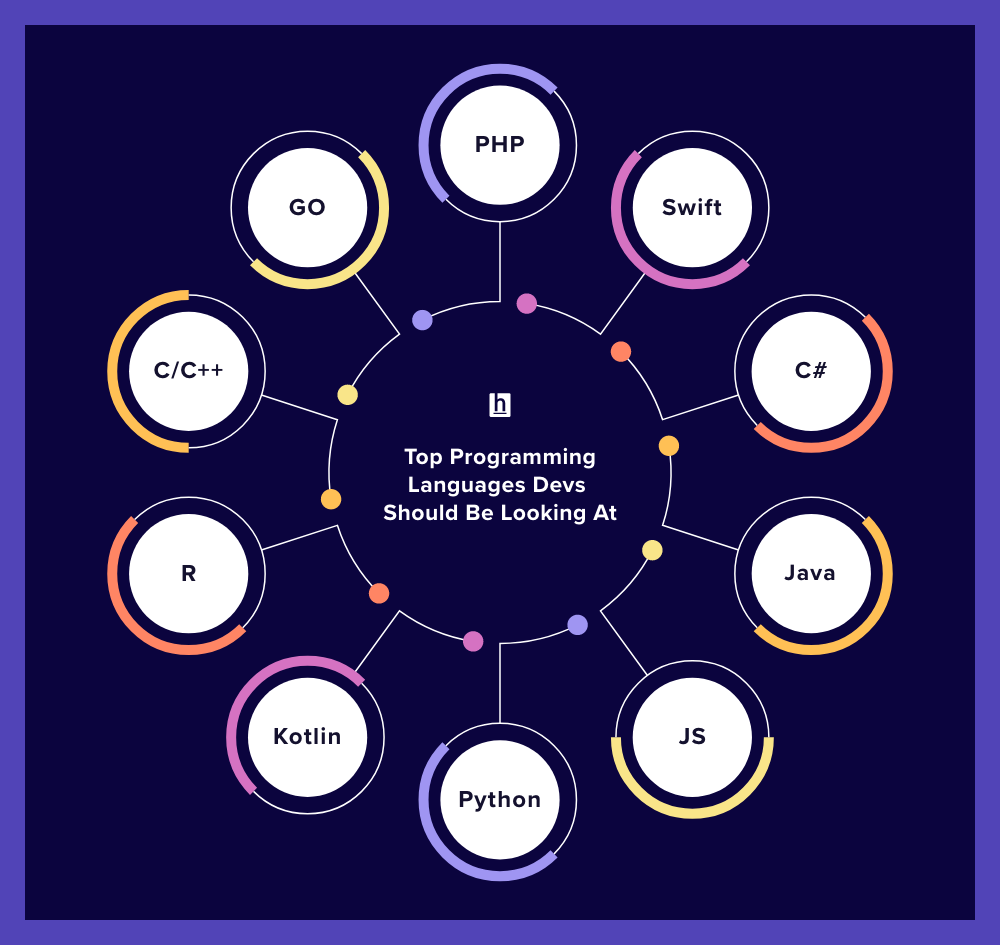
To participate in HACKATHONS here are 10 programming languages that every security expert must know
While security specialists all need to acquire a basic foundation of security principles, the specific technologies including programming languages that each has to comprehend can be highly different. Regardless of whether you are a security aficionado, a future designer, or a veteran, the reality is that the tech landscape is continually evolving. Because of this continually increasing pattern, cybersecurity careers are popular among the youth. Therefore, it becomes vital for security specialists to grasp and understand programming languages to participate in AI hackathons. Hackathons are events where people from different corners can get together under the name of the competition to sharpen their talents and learn more about their opponents. On that subject, this post lists the best 10 programming languages to ace AI hackathons in 2022.
HTML
HTML is important since virtually every other website makes use of it.
The most important programming language of them all is a markup language. HTML is the awkward step before learning to walk.
90.7 percent of the numerous websites in the present tech landscape are written in this programming language.
JavaScript
When users visit the website, designers can use any code thanks to JavaScript.
This enhances the website’s primary functionality. Contrary to what would be anticipated, it might result in adversarial utility provided by the visitor. If the hacker takes over the website, they can use malicious software to launch a programmed.
A thorough understanding of JavaScript will help you comprehend how the language has evolved over time in the cybersecurity industry.
Python
Python gives software professionals the ability to automate tasks and control malware research.
Additionally, a sizable third-party library chock full of scripts is readily available. A SOC support expert is one of the employment roles if you are familiar with Python. You will create tools and scripts in this role to protect the website from cyber-attacks.
Data, logs, and artefacts can also be used to analyze the causes of problems.
C
Reverse engineering and opening detection work best with C
Since it is simple to use and understand, this programming language has been in use since roughly 1970 and is still widely used.
C gives programmers the ability to write low-level code. Experts in security awareness will make sure the site is impenetrable.
Contrary to popular belief, programmers will use C to look for gaps in the site’s security.
PHP
PHP is everything you need to know if you’re looking for a job that involves securing websites.
It studies the data flow of a web application from input parameters to cautious strategies. RIPS can be used by PHP programmers who work on security-related issues. A server-side web app logic will be written by a PHP security-focused developer.
C++
A more advanced version of C is C++. Like C, this programming language is outdated.
Since C and C++ are related, most employers favor candidates who have a solid grasp of both of these languages.
A C++ developer creates desktop and mobile applications, and programmers are trained to spot and fix problems and exposure examples.
Swift
Since 2014, it has been in use. primarily for creating IOS applications. Even though the language is relatively young, it deserves your attention. Open-source code and simple syntax are the features. And the excellent interaction with Objective-C is a huge benefit.
Additionally, WordPress, Mozilla Firefox, and Flappy Bird all employ Swift. It quickly gained popularity.
This situation is unusual. This might be as a result of Apple, which created the iOS platform and is currently introducing fresh upgrades.
Ruby
Yukihiro Matsumoto from Japan invented and developed Ruby, a general-purpose high-level language.
It has now grown to be one of the most widely used programming languages worldwide. Numerous websites, such as Airbnb, Hulu, Kickstarter, and GitHub, have made extensive use of Ruby. Because it maintains a lot of a machine’s complicated information, Ruby is one of the greatest programming languages for cybersecurity. This makes applications easier to design and require less code.
SQL
Almost every website breach involving the theft of users’ personal information that makes the news involves hackers getting access to a database, frequently through some form of SQL injection. Understanding SQL queries, their impact, and what they are intended to achieve will help cybersecurity professionals better comprehend the threat posed by a poorly protected database.
CSS
Typically used in conjunction with HTML, CSS controls how a webpage appears. While CSS controls the size, color, and placement of every element on a page, HTML only organizes site text into chunks. Because of the language’s accessibility, newcomers can dip their toes in the figurative coding pool.


